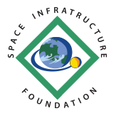KARRI PALMETIER
Karri brings more than two decades of experience in government contracting and aerospace and defense industries. She started her career as a U.S. Air Force judge advocate where she supported major defense programs, base operational contracting, and international and joint war operations. Karri gained additional breadth working in a major D.C. law firm on a variety of government contracting matters.
Karri then joined the in-house legal department at United Launch Alliance where she supported multiple issues across the company, including major government and commercial contracts, business system compliance, Freedom of Information Act, subcontract administration, and major litigation. Before establishing her own practice, Karri acted as the Chief Operating Officer and General Counsel for Special Aerospace Services, a certified 8(a) woman-owned small business. She uses her unique and diverse background to advise companies on all aspects of government contracting, including translating and simplify the byzantine laws of the world of government contracts.
Karri then joined the in-house legal department at United Launch Alliance where she supported multiple issues across the company, including major government and commercial contracts, business system compliance, Freedom of Information Act, subcontract administration, and major litigation. Before establishing her own practice, Karri acted as the Chief Operating Officer and General Counsel for Special Aerospace Services, a certified 8(a) woman-owned small business. She uses her unique and diverse background to advise companies on all aspects of government contracting, including translating and simplify the byzantine laws of the world of government contracts.
JOHN W HINES
John Hines is Managing Director and Chief Technical Officer at JH Technology Associates LLC(JHTA), a California-based Technology Consulting and Advisory Services company. Particular JHTA expertise areas include Space and Small Spacecraft Technologies, Medical/Biological Technologies, Technology Aggregation, and Technology Program/Project/Product Management.
John retired as Ames Research Center Chief Technologist (CCT) in December, 2012, after nearly 37 years of service. Prior to the CCT position, John was Chief Technologist in the ARC Engineering Directorate, Deputy Chief and Chief Technologist for the Small Spacecraft Division, and Nanosatellite Missions Office Manager. As originator of the Ames Nanosatellite Missions Office, John initiated, directed or facilitated ten nanosatellite/ISS/Free Flyer missions and projects, with a nearly 100% success rate of delivering the required Space products. John has Chaired Peer and Program reviews and panels for the NASA STMD Small Spacecraft Technology Program, and the NASA HEOMD AES Program.
For the National Academy of Sciences, John served on the Committee on Space-Based Additive Manufacturing of Space Hardware( COSBAM-2014), and the NAS Space Technology Industry-Government-University Roundtable (STIGUR), which, together with STMD, explore critical space technology research issues related to NASAs technology portfolio. From 2002-2009 John was the Principal Investigator for Biosensors and in-situ Bio-analytical Systems. John created the Sensors 2000! and Astrobionics Integrated Program and Project Teams (IPPT). Under Johns direction, these teams developed/applied advanced technologies for Medical/Biological, Biotechnology, small satellites, wearable biomedical biotelemetry sensors, and bio-analytical measurement systems.
From 2002-2004, John was Program Manager for the NASA-NIH-NCI Biomolecular Physics and Chemistry Program, focused on revolutionary measurement approaches to detect and diagnose the onset of molecular anomalies related to disease and space-flight induced physiological degeneration. John is also Chairman of the Hines Family Foundation for Education, Innovation, and Service, a non-profit Atlanta, Georgia based STEM, Innovation and Technology Workforce enabler, which aims to provide resources, opportunities and support for deserving, underrepresented, underresourced individuals and groups.
John has a BS in Electrical Engineering from Tuskegee University, a MS in Biomedical and Electrical Engineering from Stanford University, and over 40 years of combined NASA/Air Force/Research Institute experience in biological/biomedical technology development, spaceflight hardware development, electronic systems, technology assessment, program/project/product development, management, and program advocacy.
John retired as Ames Research Center Chief Technologist (CCT) in December, 2012, after nearly 37 years of service. Prior to the CCT position, John was Chief Technologist in the ARC Engineering Directorate, Deputy Chief and Chief Technologist for the Small Spacecraft Division, and Nanosatellite Missions Office Manager. As originator of the Ames Nanosatellite Missions Office, John initiated, directed or facilitated ten nanosatellite/ISS/Free Flyer missions and projects, with a nearly 100% success rate of delivering the required Space products. John has Chaired Peer and Program reviews and panels for the NASA STMD Small Spacecraft Technology Program, and the NASA HEOMD AES Program.
For the National Academy of Sciences, John served on the Committee on Space-Based Additive Manufacturing of Space Hardware( COSBAM-2014), and the NAS Space Technology Industry-Government-University Roundtable (STIGUR), which, together with STMD, explore critical space technology research issues related to NASAs technology portfolio. From 2002-2009 John was the Principal Investigator for Biosensors and in-situ Bio-analytical Systems. John created the Sensors 2000! and Astrobionics Integrated Program and Project Teams (IPPT). Under Johns direction, these teams developed/applied advanced technologies for Medical/Biological, Biotechnology, small satellites, wearable biomedical biotelemetry sensors, and bio-analytical measurement systems.
From 2002-2004, John was Program Manager for the NASA-NIH-NCI Biomolecular Physics and Chemistry Program, focused on revolutionary measurement approaches to detect and diagnose the onset of molecular anomalies related to disease and space-flight induced physiological degeneration. John is also Chairman of the Hines Family Foundation for Education, Innovation, and Service, a non-profit Atlanta, Georgia based STEM, Innovation and Technology Workforce enabler, which aims to provide resources, opportunities and support for deserving, underrepresented, underresourced individuals and groups.
John has a BS in Electrical Engineering from Tuskegee University, a MS in Biomedical and Electrical Engineering from Stanford University, and over 40 years of combined NASA/Air Force/Research Institute experience in biological/biomedical technology development, spaceflight hardware development, electronic systems, technology assessment, program/project/product development, management, and program advocacy.


